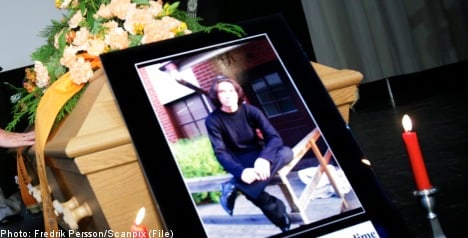“There will be a remand hearing for them in the Supreme Court tomorrow, Tuesday,” said prosecutor Kerstin Eriksson.
The Supreme Court has ruled to allow a retrial in the case of their son, who was 18-years-old at the time, and who remains the only person convicted in the murder of 20-year-old Abbas Rezai.
The man, who is now 23-years-old, was sentenced to four years youth detention followed by deportation to Afghanistan. He was released in November 2009 and has since then been fighting his deportation.
The court classified the murder as a so-called honour killing as Rezai was involved in a relationship with the convicted man’s sister at the time of his brutal slaying in November 2005.
His parents were meanwhile acquitted despite both the district court and the appeal court ruling that their son could not have committed the crime alone.
In his application for a pardon from the Supreme Court, the 23-year-old has forwarded claims that it was in fact his parents who were behind the killing, arguing that he was merely present in the apartment at the time.
In support of his case he has cited the testimony made in police interviews by his younger brother, who was 15-years-old at the time. The teenager spent some time in state care due to concerns over reprisals from his family.
The man has furthermore supported his application with a new statement from the medical examiner and the police forensics team which carried out the examination of the apartment.
The 22-year-old’s parents dispute their son’s new version of the events and argued through their lawyer, Elisabeth Massi Fritz, that he has fabricated his story in order to avoid deportation to Afghanistan.
“I think it is unreasonable to conclude that he is entirely innocent,” Massi Fritz said.
20-year-old Abbas Rezai was found dead in an apartment in Högsby in southern Sweden in November 2005.
After a police examination it was concluded that Rezai was scalded with hot oil, hit with a variety of objects and repeatedly stabbed in the back and chest, with the majority of the wounds sustained after his death. He was also almost entirely scalped and one of his fingers had been partially chopped off.


 Please whitelist us to continue reading.
Please whitelist us to continue reading.
Member comments